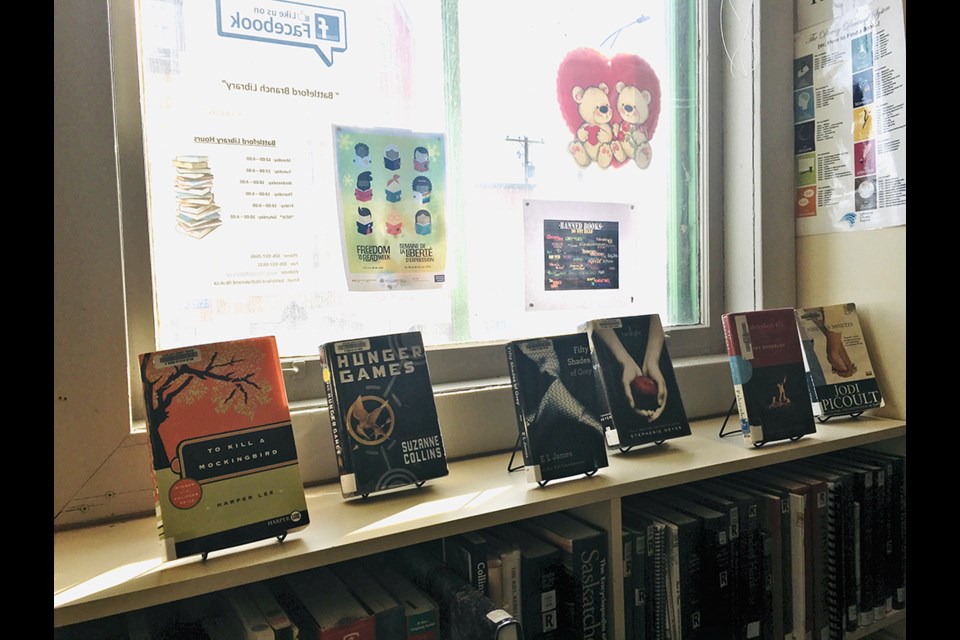BATTLEFORD — The Battleford Public Library is getting ready to process some lawbreakers next week with a mugshot station and banned book display for Freedom to Read Week from Feb. 18 to 24.
Carla Lamontagne, the branch's librarian, says the display and mugshot station will help drive home the point of Freedom to Read Week, a point which she says is making sure no one is told what they can or can't read.
"I think people should make their own decision on what they're going to read. Otherwise, we're going to go back to World War Two ... where Hitler was burning all the books," Lamontage told the News-Optimist in a phone interview about the upcoming event.
One reason books are banned, Lamontagne feels, is the use of the N-word in some novels like Tom Sawyer or To Kill a Mockingbird that touch a nerve in some people.
"But they don't realize that's how it was then ... that gives you a window into what life was like in that time period," she added.
"It's kind of like your statues. You want to forget, you want to obliterate it, but it's the past. It's there. If you totally erase everything from the past. How are you ever going to get better and not make those same mistakes down the road?
The idea for the mugshot station, she says, where patrons can get a mugshot snapped of themselves and their banned book came from other libraries south of the border where book bans are reportedly sweeping US libraries and schools.
But Freedom to Read Week is celebrating its 40th anniversary in Canada this year and says that book banning is also an issue in Canada despite relative silence on the subject.
"Despite having strong traditions of free expression and free inquiry, Canada also has a long-standing tradition of censorship," reads a section of Freedom to Read Week's website.
They note, that even in Canada, which is considered internationally to be a free country schools and libraries are regularly asked to remove books and magazines from their shelves.
"Historically, books and magazines have often been quietly removed from libraries and classrooms. Freedom to Read Week was founded in 1984 to challenge the covert nature of censorship, creating a broader awareness of these ongoing challenges to Canadian writing."
Some of the banned books on display back in Battleford, include Fifty Shades of Gray, The Hunger Games, and Fahrenheit 451, though Lamontagne notes a more comprehensive list is kept on hand to order from other branches.
She noted that libraries across Canada have copies of controversial books ranging from Mein Kampf to the Communist Manifesto or other works that have been proven controversial like Harry Potter or 1984.
"They give people the freedom to read what they want and make their own decisions," she said.
"And by keeping your options open, I think it allows people to be aware of the past, the present, and in that way, you're going to affect your future."




